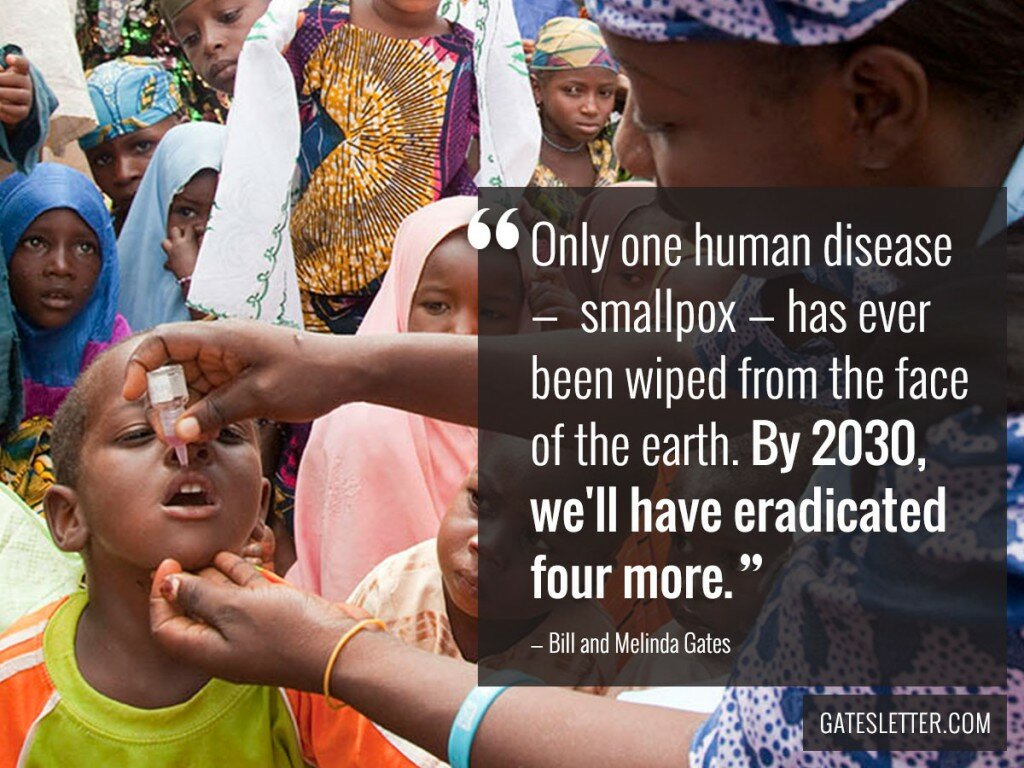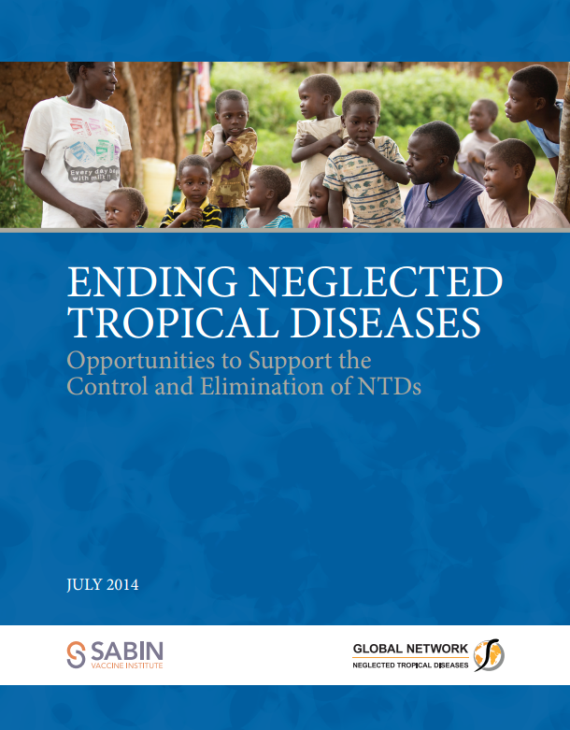In their Annual Letter, Bill and Melinda Gates have one big bet: The lives of people in poor countries will improve faster in the next 15 years than at any other time in history. And their lives will improve more than anyone else’s.
Considering the tremendous progress made in the fight against neglected tropical diseases (NTDs), we couldn’t agree more. By advocating for the control and elimination of NTDs, the international community is making big strides to improve the lives of the world’s poorest people.
Just last year, 800 million people were treated for NTDs, and the U.S. Agency for International Development (USAID)’s NTD Program successfully delivered its one billionth NTD treatment. Echoing this momentum, NTD treatment continues to be recognized as a key tool for cutting extreme poverty. For example, the G7 and BRICS countries (Brazil, Russia, India, China and South Africa) recently made commitments to accelerate progress toward the global fight against NTDs.
NTDs are the most common affliction of the world’s poorest people, contributing to debilitating blindness, disfiguration and a number of harmful outcomes including school absenteeism, malnutrition and poor maternal and child health. This group of parasitic and bacterial infections is notorious for perpetuating poverty and undermining broader global development efforts. In order to end poverty and improve the lives of the poor, we must prioritize the control and elimination of NTDs.
In their annual letter, Bill and Melinda Gates specifically call for the end of four NTDs: Guinea worm, elephantiasis, trachoma and onchocerciasis. They write:
“Destroying a disease utterly is a very difficult thing to do—so difficult, in fact, that it’s only happened once in history, when smallpox was eradicated in 1980. But if we keep working hard, we can eradicate four diseases by 2030. We can get polio out of Africa this year and out of every country in the world in the next several years. Guinea Worm, an incredibly painful disease whose sufferers spend months incapacitated while worms that can be several feet long burst out of their legs, will also be gone soon, thanks in large part to the leadership of President Carter and the Carter Center. We’ll also see the last of diseases like Elephantiasis, River Blindness, and Blinding Trachoma, which disable tens of millions of people in poor countries. The drugs that can stop these scourges are now being donated in huge numbers by pharmaceutical companies, and they’re being used more strategically thanks to advances in digital maps that show where diseases are most prevalent. Last year these free medicines were distributed to 800 million people.”
Bill and Melinda Gates’ important message injects new energy into the fight against NTDs. Their message is timely, following the recent appropriation by Congress of $100 million toward USAID’s NTD Program for FY 2015 and the launch of India’s ambitious campaign to treat more than 400 million people for elephantiasis, which if successful, could help India eliminate elephantiasis within the next few years and set a bold example for the world.
To read the full letter, click here. To read a statement from Dr. Neeraj Mistry, Managing Director of the Global Network for Neglected Tropical Diseases, click here.




